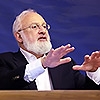Audio Version Of The Blog – 03.17.14
Listen to an Audio Version of the Blog
Download: MP3 Audio
[audio:http://files.kabbalahmedia.info/audio/eng_o_rav_2014-03-17_declamation_blog-rav_full.mp3 title=’17.3.14′]

Listen to an Audio Version of the Blog
Download: MP3 Audio
[audio:http://files.kabbalahmedia.info/audio/eng_o_rav_2014-03-17_declamation_blog-rav_full.mp3 title=’17.3.14′]
 Opinion (Frans van Houten, Chief Executive Officer of Royal Philips): “Today, the world needs a similar paradigm shift. But this time it is the prevailing economic model that must be transformed. … The problem is that the world has long maintained a myopic focus on producing and consuming goods as cheaply as possible. The result is a linear economy based on the rapid use, disposal, and replacement of goods.
Opinion (Frans van Houten, Chief Executive Officer of Royal Philips): “Today, the world needs a similar paradigm shift. But this time it is the prevailing economic model that must be transformed. … The problem is that the world has long maintained a myopic focus on producing and consuming goods as cheaply as possible. The result is a linear economy based on the rapid use, disposal, and replacement of goods.
“Sustaining the current model would require unlimited, easily accessible resources and infinite space for waste – something that clearly is not possible. Indeed, the consequences of our disposable economy – skyrocketing CO2 emissions, unmanageable waste streams, and the increasing difficulty of extracting resources, to name a few – are already apparent.
“To find a sustainable alternative, one need only look to nature, where nothing is wasted. … This requires a new generation of materials, as well as innovative development and production processes. It also demands new business models, a redefined concept of legal ownership and use, new public-tendering rules, and novel financing strategies. Finally, a circular economy calls for adaptive logistics and a leadership culture that embraces the new system and rewards progress toward establishing it. …
“But businesses cannot transform the economy alone. In order to shift firms’ emphasis from minimizing initial costs to maximizing total value, while ensuring the protection of people’s health and well-being, governments should change their tendering processes by implementing requirements for circularity, thereby helping to drive demand for new solutions.
“At the same time, consumers must be open to using products that they do not own. Because the circular economy is inherently systemic, it can succeed only if all stakeholders co-design, co-create, and co-own products and services. …
“Like all major transitions in human history, the shift from a linear to a circular economy will be a tumultuous one. It will feature pioneers and naysayers, victories and setbacks.”
My Comment: Capitalists will never change their goal: maximum profit in any way. Our egoism cannot think about anything else. The transition to the integral economy, where only necessities are produced only in an environmentally friendly way, is possible only through the re-education of capitalists either voluntarily (by explaining its necessity) or against their will (through suffering and crises).
[130048]
Related Material:
Social Rejection Linked To Later Health Outcomes
Solving Problems That Have No Solution
Where Does The Culture Of Consumerism Come From?
 Question: If a higher management operates within everything, why is it said that the wisdom of Kabbalah was revealed before its time?
Question: If a higher management operates within everything, why is it said that the wisdom of Kabbalah was revealed before its time?
Answer: The Kabbalists of the past let the nations of the world learn the wisdom of Kabbalah and get all of the knowledge that they wanted from there so they could develop the science and wisdom of this world.
Through this, the world could develop in an egoistic way and could reach recognition of evil. But the wisdom of Kabbalah was concealed from the people of Israel; otherwise, it would not have felt that it was in exile. A little involvement with the wisdom of Kabbalah already gave them some illumination.
So on one hand, the Kabbalists revealed external wisdom to all of the nations of the world, and on the other hand, they concealed the internal wisdom. So it follows that the external wisdom was revealed more and more, and the internal wisdom was concealed more and more.
These processes approached each other: Spirituality descended and subsided, and materiality grew all the time. Eventually, we came to such a state that today we have an abundance of materiality; you can do what you want! But there is no satisfaction from this life.
[130012]
From the 3rd part of the Daily Kabbalah Lesson 3/10/14, Writings of Baal HaSulam
Related Material:
The Classical Wisdom Of Kabbalah And The Evolution Of The Urgently Needed Planetary Consciousness
The Revelation Of Kabbalah To The World: For Evil Or Good?
Do You Know Why The Wisdom Of Kabbalah Came Into The World?
 Question: When I work with the right intention, I feel that it is like a flash of lightning that I cannot hold on to for more than a moment. I keep forgetting the intention although sometimes I have an insight like a flash that is immediately extinguished. What should I do so that the intention could burn all the time?
Question: When I work with the right intention, I feel that it is like a flash of lightning that I cannot hold on to for more than a moment. I keep forgetting the intention although sometimes I have an insight like a flash that is immediately extinguished. What should I do so that the intention could burn all the time?
Answer: You need mutual guarantee for that. There are no friends around you who think about you. Everyone is thinking about himself and so you have such flashes every couple of hours.
If you thought about each other a bit more, you could keep the right intention permanently and feel as if you are riding on a pillow or a flying carpet. I don’t even have to think about you or him but about us, that it is a spiritual vessel.
Question: But I see that the friends are trying to do that! Why don’t we succeed yet?
Answer: If you see that the friends are trying and that you have tried with them and sustained yourself and that you still fell, it is a good thing. Such falls are already for the sake of the next ascent so that you will grow stronger. You are on the right track; you are intentionally thrown from the right intention as if you have totally forgotten everything, yet it isn’t loss of consciousness but the way you advance up the King’s mountain. There is a great difference.
[130033]
From the 4th part of the Daily Kabbalah Lesson 3/13/14, Writings of Baal HaSulam
Related Material:
The Power Of The Intention Is In Its Constancy
My Heart Is In The Hands Of The Friends
Separation That Helps Stronger Connection
Answer: A name is what we call a certain phenomenon in the most appropriate way. There is the Light and a vessel, two factors that are revealed by each other, and their common appearance leads to the expression called “name.” We don’t know what the Light is; we don’t understand or feel it. We only feel the action of the vessel which is opposite to its nature: The vessel, the desire to receive is suddenly revealed in the form of a desire to bestow, and thus we see bestowal on top of receiving.
These two opposite forces create a certain form by connecting in a certain manner, which is called a name. The form itself is the name, although in our world, in my mind, in my computer, the name is already written in a different form according to my software, according to my codes. The form itself is actually the name of the state that is created by the mutual cooperation between the Light and the vessel.
The name is with regard to those who receive, which means that I have to adapt to a certain phenomenon in a certain way and then according to the form that is adapted to the phenomenon I call the phenomenon by name. I don’t know the name of the general phenomenon, but I can thus call part of it according to my vessel, according to my name. So when I say something about someone, it is not talking about me or him but about the extent of my attainment of it.
We should take this into account. We never learn the actual phenomenon itself but only with regard to the person who attains it. So when I attain something, I don’t say that it is something specific but that I attain the phenomenon because my attainment is always according to my vessels, according to the equivalence of form with some part of the general phenomenon that isn’t familiar to me.
We exist in a universe, but now we begin to attain that there are infinite other universes. We, however, attain only part of it and we call it a universe. So the name is never the actual phenomenon but only the part which I attain.
[130029]
From the 3rd part of the Daily Kabbalah Lesson 3/11/14, Writings of Baal HaSulam
Related Material:
The Need For The Creator
The Names That We Give
The Holy Names Of Bestowal
 The Torah, “Exodus” (Ki Tissa), 34:8-34:11: And Moses hastened, bowed his head to the ground and prostrated himself, and said: “If I have now found favor in Your eyes, O Lord, let the Lord go now in our midst [even] if they are a stiff necked people, and You shall forgive our iniquity and our sin and thus secure us as Your possession.” And He said: “Behold! I will form a covenant; in the presence of all your people, I will make distinctions such as have not been created upon all the earth and among all the nations, and all the people in whose midst you are shall see the work of the Lord how awe inspiring it is that which I will perform with you. Keep carefully what I am commanding you today: Lo! I will drive out from before you the Amorites and the Canaanites, the Hittites and the Perizzites, the Hivvites and the Jebusites.”
The Torah, “Exodus” (Ki Tissa), 34:8-34:11: And Moses hastened, bowed his head to the ground and prostrated himself, and said: “If I have now found favor in Your eyes, O Lord, let the Lord go now in our midst [even] if they are a stiff necked people, and You shall forgive our iniquity and our sin and thus secure us as Your possession.” And He said: “Behold! I will form a covenant; in the presence of all your people, I will make distinctions such as have not been created upon all the earth and among all the nations, and all the people in whose midst you are shall see the work of the Lord how awe inspiring it is that which I will perform with you. Keep carefully what I am commanding you today: Lo! I will drive out from before you the Amorites and the Canaanites, the Hittites and the Perizzites, the Hivvites and the Jebusites.”
The Creator is a law, an absolute, ideal attribute that doesn’t change and is revealed to a person on every level in a totally different form. On the previous level He said: “I will not go up in your midst since you are a stiff necked people, lest I destroy you on the way.” And on the next level He said: “I am ready to lead you forward.” Everything depends on the level a person is on. The Creator doesn’t change; we are the ones who change.
So the words: “…before all thy people I will do marvels, such as have not been wrought in all the earth, nor in any nation,” mean that “I can already be among you in the attribute that you have acquired now, and perform certain actions on you.”
On the next level there is another descent into the ego, in order to reveal it and once again ask and activate the attribute of Moses inside us. It is the same on every level. Everything is accurately arranged since this is the only way the correction of each part can take place.
[129881]
From KabTV’s “Secrets of the Eternal Book” 9/16/13
Related Material:
So That The Creator Will Work On Us
Keep Your Attributes
By Trial And Error
 Question: Does love awaken automatically when we attain the fear of God?
Question: Does love awaken automatically when we attain the fear of God?
Answer: We should constantly work on love. The levels by which we approach the goal of creation are called the four phases of love. It says, “love thy friend as thyself.” It doesn’t say that you should fear your friend first and then feel that you love him.
“Love thy friend” means that we always advance towards unity, whereas fear doesn’t lead to unity. We are always attracted to connection and love, and so we are in the process of attaining its four phases.
We speak about the proper attitude towards the Creator, towards the upper system, which responds to us thus helping us start our mutual work with the Creator, and not about corporeal fear that the Creator should give us health, money, success, and a happy life in this world and in the next world. It is only about acquiring the force of love and bestowal. Fear constantly leads to that; it is the fear of not attaining love.
If I already attain a certain level of love, I fear that I might lose it and not advance and not reach an even greater love. We must always yearn for love on the part of mercy and not on the part of Din (judgment).
[129937]
From the Preparation to the Daily Kabbalah Lesson 3/14/14
Related Material:
“Fear Must Adhere To Love”
There Are No Two Loves That Are Alike
How Can We Be Afraid Of Someone We Love?
 Question: Why is the human level called the speaking level?
Question: Why is the human level called the speaking level?
Answer: Animals don’t feel any need for language like we have since they possess natural connections between them and they are completely satisfied.
The human language that we have developed in order to communicate has two forms. The first is the holy form of bestowal that is used in order to convey the relations in the system of bestowal that is above the system of receiving. It is a system of faith above reason. There is also the language of the posterior that was developed after the destruction of the tower of Babel, and it is the language of receiving in which a person doesn’t understand others.
Our level is called the level of the speaking because we speak and don’t understand one another! But there is a small group of people who do try to understand one another by using a language called the holy language, which is conveyed from heart to heart, thanks to the connection of the hearts.
First there was one major language in ancient Babel—Aramaic. The Hebrew language has been in use since the time of Adam HaRishon (first man). We don’t know who preceded him. So the written and spoken language stem from the attainment Kabbalists reached. People spoke different languages in their daily life; they simply agreed to use certain sounds in order to indicate certain objects and phenomena, like animals that groan. But the real language began to develop from the time of Adam HaRishon, and it was Hebrew. Later, Aramaic was developed as an opposite form of Hebrew, like two sides of the same phenomenon. These languages, which Kabbalists spoke, were a result of the upper attainment, while ordinary people spoke in order to express their needs.
When the children of Israel left Babel they took Hebrew and Aramaic with them. All the other peoples dispersed all over the world and developed their own languages according to the place they settled in.
After all, it isn’t just a language. The desire to enjoy, the Masach (screen) and the Returning Light, the desire to bestow, the corrupt and the corrected states all make up the language of the inner communication between us. When some people reached England, some reached Germany, some reached France, as Josephus Flavius tells us in a picturesque manner about the dispersion of the Babylonians all over the world, they felt that they should speak in a specific manner according to their group and their location since it was an expression of a specific desire, of a specific state. So every group developed its own language
The words were not created by chance. It was a way for a person who wanted something to express his attitude towards others, and so he used certain words in order to refer to his property and his feelings. This is how different languages were created.
Question: Will there be one language once again at the end of correction?
Answer: Without a doubt! It will be the language of bestowal.
Question: How will we speak this language?
Answer: We will not speak, we will feel. Why do we need words if we are one body? Does my hand talk to my leg? The information simply flows between them. This is also how we will convey information to each other. Mutual bestowal doesn’t require a language or any form of communication.
Question: How will we delight the Creator by this mutual bestowal?
Answer: The Creator dwells among us in our attributes of bestowal.
Question: We will simply stand and do nothing and He will feel good as a result?
Answer: I don’t know what sitting or standing mean if we have no bodies. The bodies will disappear; now too they only exist in our imagination. So there will be no language but the language of bestowal that flows through this whole system. The language returns to one HaVaYaH.
A language is created only because of the lack of a real inner connection between us. This is why we need words. The better the inner connection between us, the less we need words. When you live peacefully with your wife you don’t need to speak to her much. When you argue, there is a whole cascade of words that flow between you.
Question: But I don’t fight with all of humanity!
Answer: You simply don’t know it yet, and you have to discover this.
[129336]
From the 3rd part of the Daily Kabbalah Lesson 3/6/14, Writings of Baal HaSulam
Related Material:
The Holy Names Of Bestowal
The Language Of The Revelation Of The Creator
Why Do We Need The Language Of Branches?
 Question: Where is it possible to find the border between where I need to make personal clarifications myself and when I need to turn to the group to receive help?
Question: Where is it possible to find the border between where I need to make personal clarifications myself and when I need to turn to the group to receive help?
Answer: There is no border. It is best to do it in the center of the group. But of course not hammering them with petty questions: which potato to take to peel or which cucumber to buy?
Question: So a group discussion and decision is higher than a private clarification?
Answer: As long as you do not personally put into the collective opinion, then you are accessing the collective wisdom of the group. And afterward, it will pass through and begin to live within you. Then you won’t need to turn anywhere else.
Question: Let’s say that a friend comes up with an idea to come to live in Israel. Can he go to the group with this idea, and whatever the group decides that will be the real criterion?
Answer: First of all, the real point is to make the collective above the personal. These kinds of questions constantly come up. We certainly don’t object to a person moving here, and it doesn’t matter where he is from. But the principle is that he, first of all, needs to ask himself, “Where do I bring the most benefit?”
You know how it used to be in Russia when a person would complete the military academy, he would be asked: “Where do you want to serve, comrade?” and he would answer, “Wherever my homeland sends me.”
If a person is guided specifically according to this condition, according to this standard, to this level, then certainly he is really a valuable friend. But if he wants to move because of the weather or because it will be better for him here, then that is doubtful.
Thus, you need to clarify in your group and in the central group where you are of real benefit and afterward decide if you physically have the possibility to move here. But the main thing is where you will really bring the greater benefit. This is the criterion of truth.
[129236]
Related Material:
There Is Nothing To Be Ashamed Of
“The Best Way To Solve A Problem…”
Growing In The Group
Preparation for the Lesson
| [media 1] | [media 2] |
The Book of Zohar — Selected Excerpts, “Torah and Prayer,” Item 184
| [media 3] | [media 4] |
Writings of Baal HaSulam, “Preface to the Wisdom of Kabbalah,” Item 22
| [media 5] | [media 6] |
Writings of Baal HaSulam, “Introduction to the Book, Panim Meirot uMasbirot,” Item 9
| [media 7] | [media 8] |